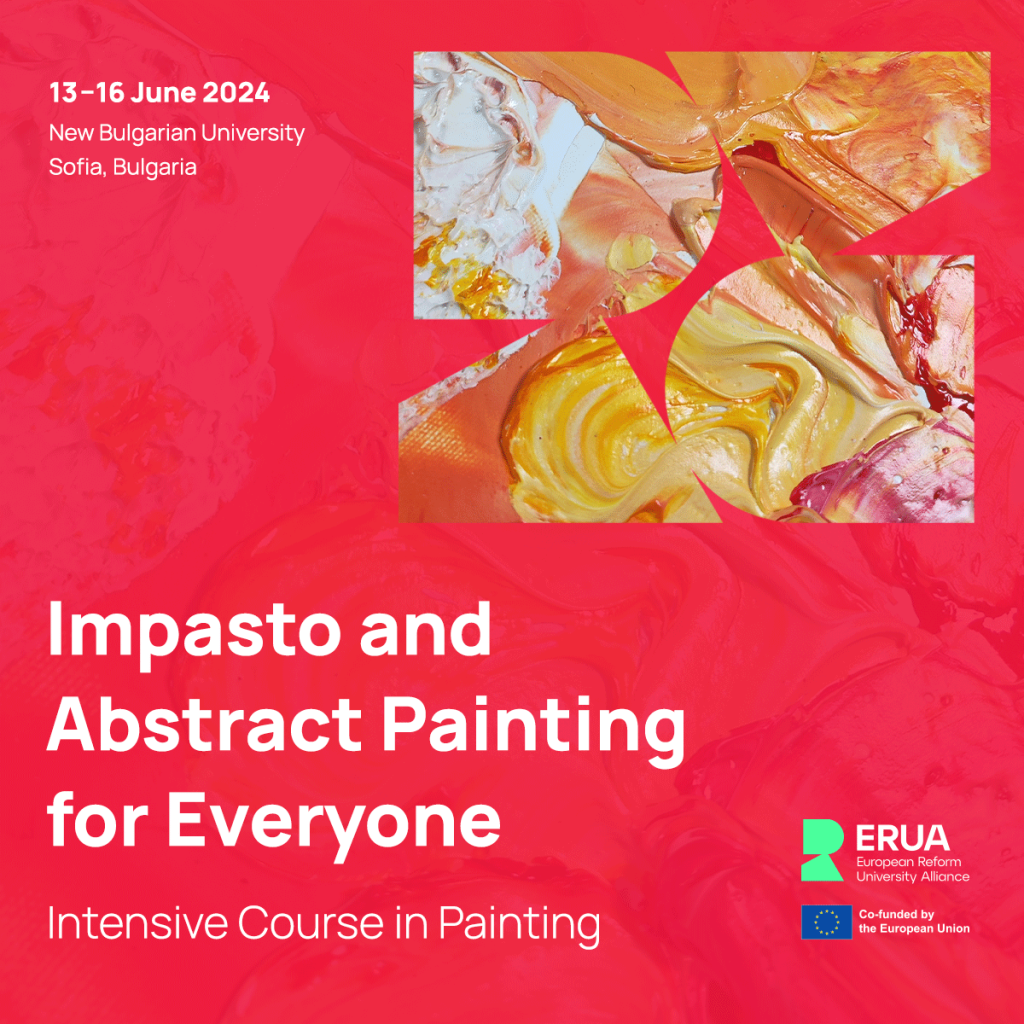Intensive Course in Painting
13th to 16th of June 2024
Sofia, Bulgaria
Between the 13th and the 16th of June, an intensive course in painting “Impasto and Abstract Painting for Everyone” will be held at New Bulgarian University, Sofia, Bulgaria.
During this intensive course students will be introduced to the world of fine art and painting. Impasto painting and abstract painting are well-known styles that are easy to achieve with the proper technique for a particular task. We will discuss the role of brush strokes, palette knife strokes, and the material aspect of art in everyday life.
Along with the practical sessions the course also offers a brief view of fine art history in search of the fundamentals connecting abstract images with emotions, shapes, and forms. On the last day we will review the paintings done by the students and the lecturer during the intensive course.
The course is organized around 3×8-hour painting sessions and a fine art history review. On the last day 6 hours will be dedicated to examinations of students’ works with contemporary up-to-date comparisons between popular brands and artists and our works. The course will also discuss how to present our work on social media and make the best for our future advertisements.
We are looking for 20 Bachelor and Master degree students with some interests in fine arts, coming from ERUA Universities.
Place: New Bulgarian University – Sofia, Bulgaria.
Funding: ERUA students can receive travel and accommodation funding from their home universities.
If you are interested, please send an email to Ms. Slavena Nikolova (snikolova@nbu.bg) no later than the 3rd of June 2024.

